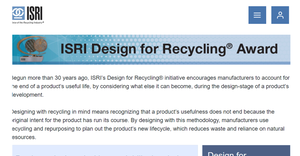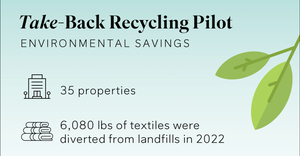After all of the recyclables have been sorted, processed and baled, it’s time to sell those bales. But the process for marketing, selling and moving bales is complicated.
In some cases, material from a recycling center may be shipped to a manufacturing plant across town. In other cases, the bales will travel to manufacturing plants located on the other side of the world. In all cases, the job of the recycling manager is to find reliable markets and get the highest value for the recyclables being sold.
Most recycling operations depend heavily on the revenue from the sale of commodities as part of their financial well-being. Unfortunately, in the past 14 months, recyclers have been plagued by weak commodity pricing, especially for plastics, scrap metal, paper and cardboard. Subsequently, many recycling operations have experienced a significant decrease in revenue.
When markets are strong and prices are high, recycling centers rarely have problems moving material. But, when markets slow down and prices drop, mills and manufacturers tend to get more selective. To keep materials moving, recycling centers need to remain focused on the production of high quality bales of recyclables that meet or exceed manufacturers’ expectations.
Domestic and International Markets
Managers must constantly work to ensure reliable, long-term available outlets for the material produced at recycling centers. Recyclers know that if there are no markets, there is no recycling. Today, bales of recyclables are shipped all over the world.
Manufacturers (both domestic and international) have a need for a steady diet of raw materials including recyclable materials. To ensure the flow of a consistent feedstock, manufacturers will establish specifications for the quality of recyclables that they can accept, including the level of acceptable contamination, moisture content, size and shape of baled materials and material density. It is important to know the criteria that will dictate the type and level of processing that must be completed at the recycling center to ensure material is the proper quality for the manufacturer.
Brokers vs. Direct Sales
Recyclables are typically sold to either mills or brokers. There are advantages and disadvantages of working with each. Selling directly to an end-market, such as a paper mill, is likely to generate better pricing for commodities provided that the material meets or exceeds the mill specifications. Working with a broker may be more convenient as many brokers are able to move various types and qualities of recyclables including fiber, plastics and metals. Brokers also can help with local, national and international shipments of materials. Most brokers work with several mills and manufacturers to identify viable markets and the highest price for the material coming from the recycling center. The prices that mills pay, as well as the broker’s commissions/payments and terms, are all negotiable.
Smaller recycling centers may find it appealing to work with a broker, as it can sometimes be difficult to sell small volumes of recyclable materials. Brokers can help as they purchase materials from multiple sources and sell to mills in bulk, thereby providing secure markets and better pricing.
Before selecting a broker, it’s always a good idea to check out the broker’s financial stability. A broker who buys material from a recycling center and then goes bankrupt or never pays for the commodities that were sold will not help the financial performance of the recycling operation.
Marketing Agreements
No matter who you sell materials to (mill or broker), it is always a good idea to have a contract or marketing agreement in place that addresses the sale of materials, including all of the terms that are part of the sale. The marketing agreement may include:
The description of the material that will be sold, including the specifications for the acceptable level of contamination, size of bales, and, if applicable, moisture content.
The volume of material that will be sold, including any minimum or maximum tonnages. The marketing agreement should clearly state the type of measurement to be used with attention paid to short tons, long tons and metric tons.
The agreed upon sale price and payment terms. In many cases, a formula may be used to protect the seller and the buyer from market fluctuations. If using a formula, make sure the marketing agreement clearly explains the formula and the indexes that will be used to determine the sales price.
Any agreed to floor prices, which indicates the minimum price per unit that the seller will receive. In some agreements, the floor price may have a termination clause if prices stay below the floor price for an extended period of time.
The pickup location with a clear indication of who is responsible for the transportation of the material.
The process for managing and resolving issues arising from rejected loads. This could include the adjustment of prices due to off-spec material resulting from excessive contamination or moisture. This is especially important because rejected loads due to excessive contamination can result in huge expenses for the recycling center.
Conclusion
The growth of markets for recyclables will occur provided that it makes economic sense. As markets mature they tend to get more stable; however, excessive supply or low demand will always lead to some fluctuations over time. A good understanding of the factors that contribute to market fluctuations is helpful, including the strength or weakness of the U.S. dollar, transportation costs and new manufacturing capacity.
Managers also should carefully monitor market prices using the Internet or subscription services that provides weekly and monthly market prices for various commodities. A recycling manager has many responsibilities; however, making sure that commodities are steadily moving and that the highest prices are being paid will help to contribute to the success of the recycling facility.
Will Flower is general manager with Winters Bros. Waste Systems in Long Island, N.Y.
About the Author(s)
You May Also Like


